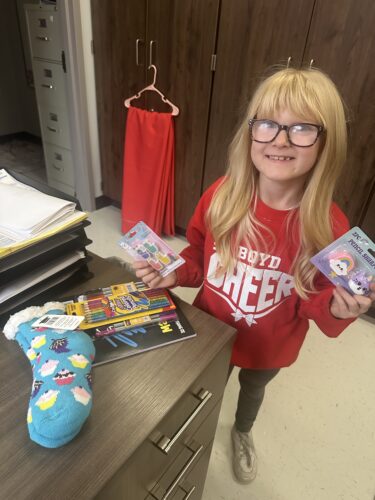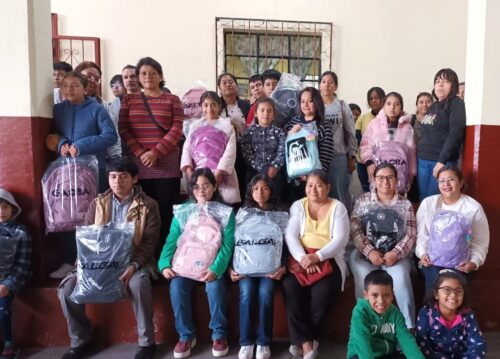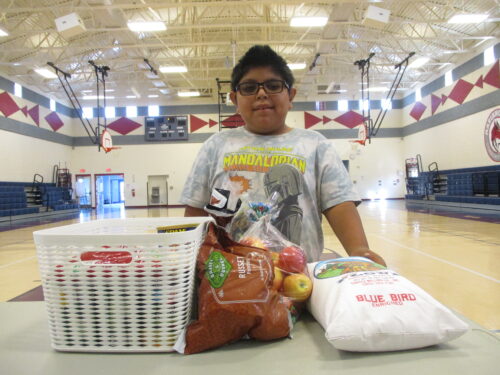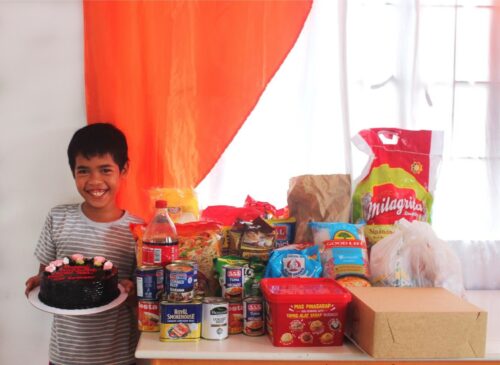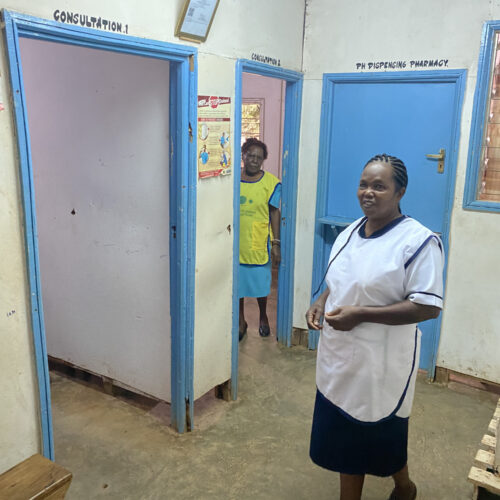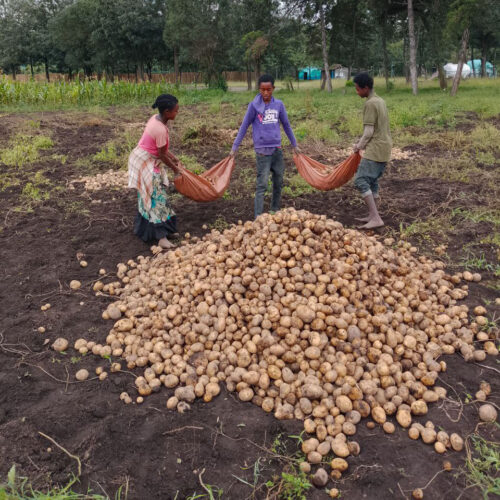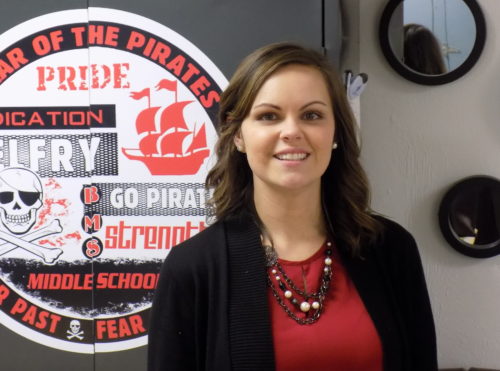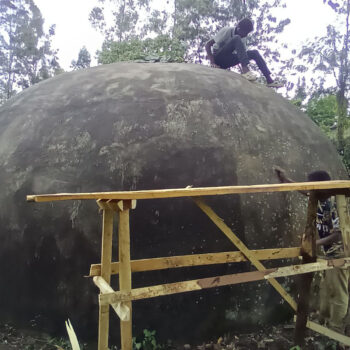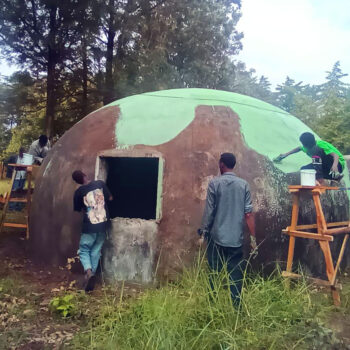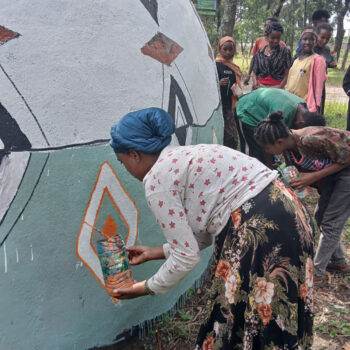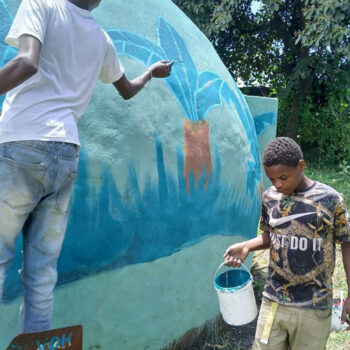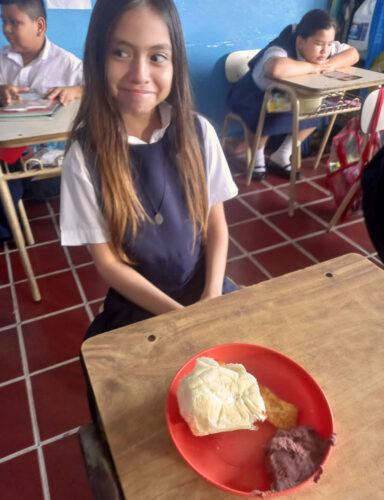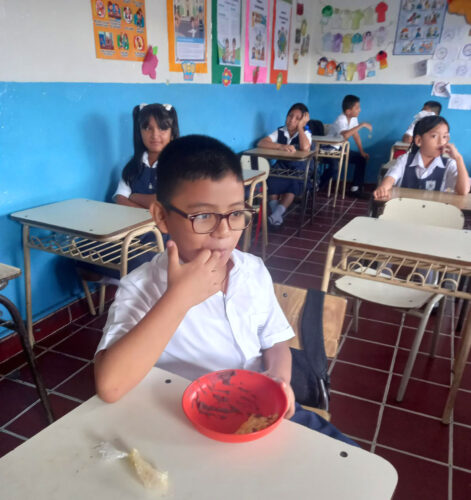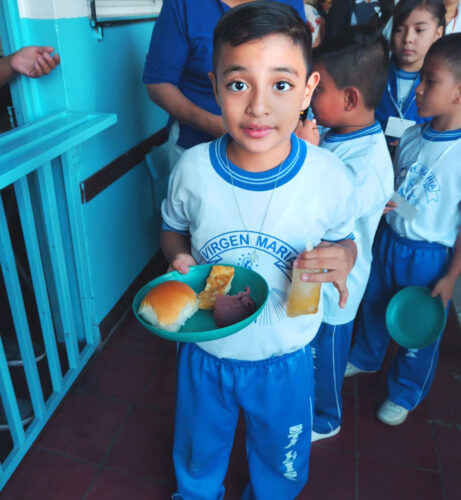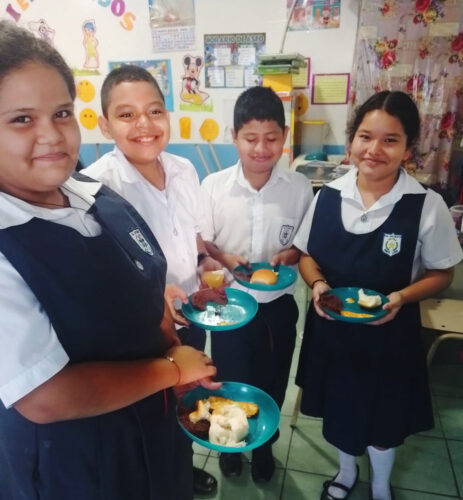Exciting Changes At Children Incorporated!
2025 has seen many changed, and for us at Children Incorporated that meant the retirement of our CEO Ron Carter and the onboarding of our new CEO Liz Collins. In his transition letter, Ron spoke of the new leadership and how it is going to positively bring CI into a new stage. We all can’t wait to continue the longstanding work at Children Incorporated!
Letter from Liz
I am delighted to reach out to you as the new CEO of Children Incorporated. It is a profound privilege to lead this organization, which has been at the forefront of supporting children in need across the globe. Your unwavering commitment and generosity have been instrumental in our mission, and I want to personally express my gratitude for your support.
As I step into this role, my goal is to build upon the strong foundation established by Ron Carter, the staff, and our volunteer coordinators. With a background in process, risk, and product management, I am eager to bring fresh ideas and renewed energy to our programs. I am not new to Children Incorporated and have most recently had the honor of serving as Board Chair for the past ten years. Knowing the organization as I do, I am committed to honoring that special, personal touch that is our trademark.
Your contributions make a significant difference in the lives of countless children, providing them with essential resources and opportunities for a brighter future. Together, we can continue this important work, fostering hope and creating lasting change.
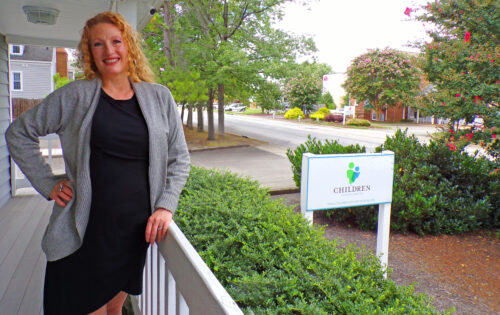
I look forward to engaging with you as we move forward, sharing updates on our initiatives, and exploring new ways to enhance our collective impact. This is a partnership. Thank you once again for your dedication and support. Together, we can change lives and inspire hope for the future – not just in the children, but each other.
Warm Regards,

Celebrating Partnership and Purpose
In April 2025, Communities In Schools of the Nation’s Capital (CISNCAP) celebrated a powerful milestone—20 years of service to Washington, D.C. students. At the heart of this celebration was a shared commitment: When schools support the whole child and their families and build strong partnerships, then those children will have improved learning outcomes.
To commemorate this incredible achievement, CISNCAP hosted a special 20th Anniversary Reception where they honored the many individuals and organizations that help make their work possible. Among those recognized were three outstanding partners whose dedication has left a lasting impact on local schools:
John and Ann Gardner, Impact Award
Principal Allen Richardson, Principal of the Year
Children Incorporated, Community Partner of the Year
We are humbled and honored that Children Incorporated was chosen for this meaningful award, especially during such a landmark celebration.
Accepting on our behalf was Liz Collins, our then Board Chair and current CEO, accompanied by U.S. Programs Director Renee Kube, who both attended the reception in Washington, D.C.Liz took the stage to accept the award, and she spoke from the heart:
Our missions are deeply aligned—and through our shared commitment, we’ve seen how caring adults can change the course of a child’s life.
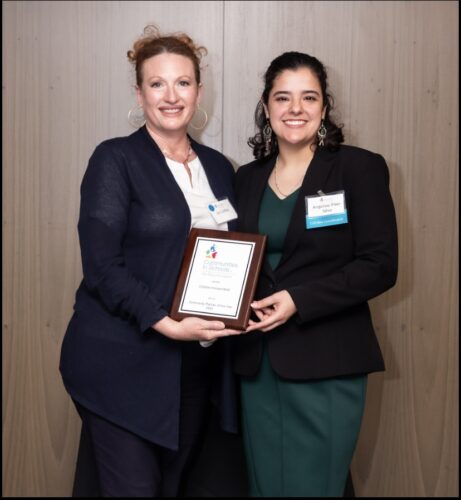
The Community Partner of the Year award will hold a proud place in our office—and in our hearts—as a reminder of what we can achieve when we come together for kids.
Communities in schools: Creating new opportunities
During the evening, Dr. Rustin Lewis, Executive Director of CISNCAP, shared reflections on the organization’s journey. He spoke passionately about the importance of holistic support for students and families, and how strong community partnerships—like the one between CISNCAP and Children Incorporated—create real and lasting change. Since 2008, Children Incorporated has been proud to serve students in our nation’s capital—where, despite the city’s prominence, one in four children still lives in poverty. These children, full of potential, deserve every opportunity to thrive—and we are honored to play a role in supporting them., Our Hope In Action Fund has helped meet urgent needs, from disaster relief to providing tablets for students with extended medical absences. Most recently, through our Higher Education Program, a sponsored student was awarded a grant to attend Catholic University of America after graduating from one of our partner schools. Together with Communities In Schools of the Nation’s Capital and the generosity of our donors, we are creating brighter futures.
Hurricane Helene: One Year Later
Remembering the hardship and resiliency of those affected
![]()
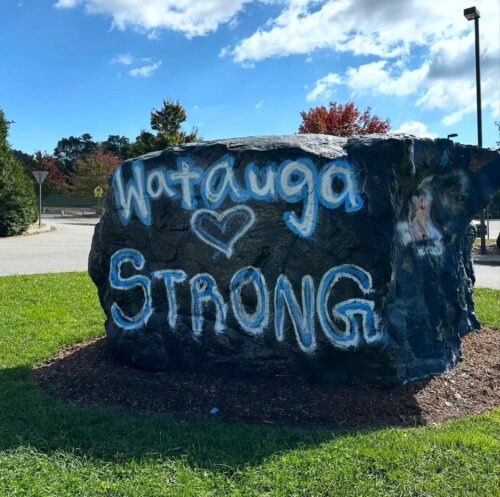
It has been a year since Hurricane Helene caused massive and devastating destruction to areas of North Carolina and Kentucky. Eleven of our affiliated sites were hit in some capacity by Helene, four of them were intensely affected. Families who were already struggling lost everything; it was a crucial time for Children Incorporated to be involved.
Through our Hope In Action Fund, we were able to send immediate resources. Through our Helene Relief Fund, over $31,000 went to directly assist children and their families in our affected areas. We purchased clothing and distributed food, and families were given hope.
Several sponsors generously donated additional gifts, enabling us to provide long-term assistance. Throughout the winter, our volunteer coordinators received valuable resources to support program participants who still faced monumental hurdles on their path back to stability.
Every dollar donated by sponsors and donors went straight to meeting urgent needs during and after the destruction. Now, a year later, we remember that harrowing time with gratitude for those who gave their time, money, and care to support all those affected.
The Appalachian region, though hard hit, remains strong.
Visayans Volunteer Center: Hope in Action
The Visayans Center was the initial place of support for children on the CI program. This small center, built in the city of Tacloban, was a big effort to accommodate volunteers who would come to this area to provide assistance to this small and poor community.
With time, more and more children wanted to participate in Children Incorporated and benefit from the support provided. We came together to purchase a larger piece of land in the area and sparked the dream of a larger Center—a place with a library, soup kitchen, volunteer space, and rooms dedicated to education and connection.
With the collaboration of initial small savings, and the generosity of CI sponsors, construction was initiated for a new Center in August of 2023. And after much effort, some pains and frustrations, positive effort, and the unwavering assistance of Children Incorporated, construction was finished and the building opened in August 2025!
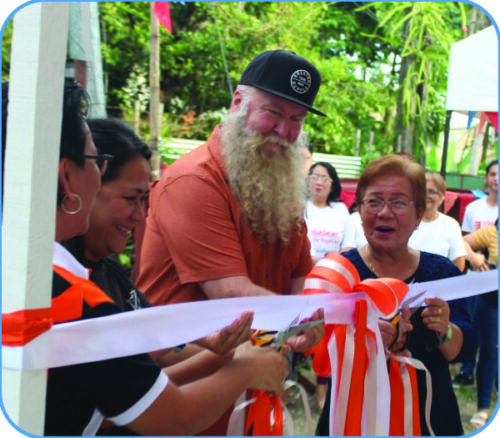
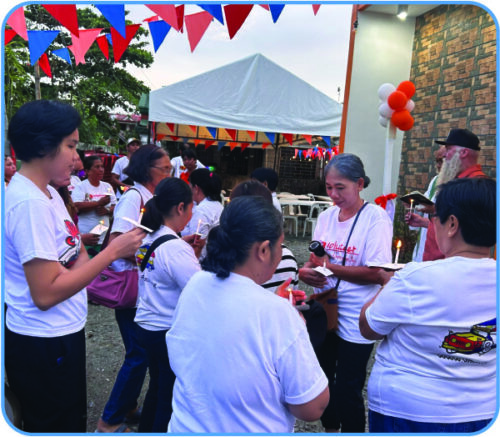
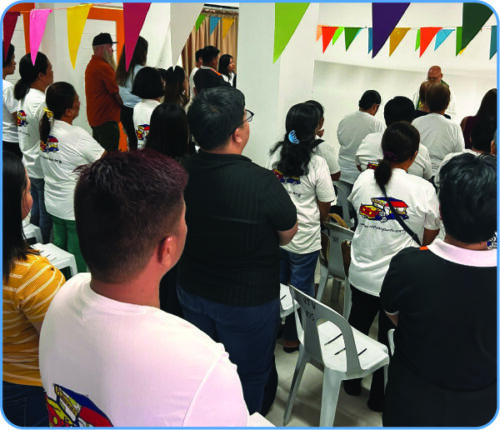
The other two Centers affiliated to CI are in different nearby locations, but will also utilize this new Center building for functions and further support.
ATTENDANCE IMPACT
The direct benefit of consistent sponsorship
![]() Thanks to our dedicated volunteer coordinators, we have an incredible insight into the long-term impact of Children Incorporated. What is the biggest difference they see?
Thanks to our dedicated volunteer coordinators, we have an incredible insight into the long-term impact of Children Incorporated. What is the biggest difference they see?
A dramatic increase in school attendance! Our data shows that consistent sponsor support leads directly to more time in the classroom and better academic progress.
PHILIPPINES
Improved Attendance: Sponsored students have maintained over a 90% attendance rate.
Academic Progress: Many are showing marked improvements in literacy, numeracy, and overall academic performance.
Comprehensive Support: Students received essential school supplies, uniforms, shoes, daily meals, and access to mentorship.
Personal Growth: Several have taken part in life skills workshops, leadership training, and extracurricular programs.
Your support helps me dream bigger. I want to become a police so I can give back to my community.”
Jonathon, 14 years old
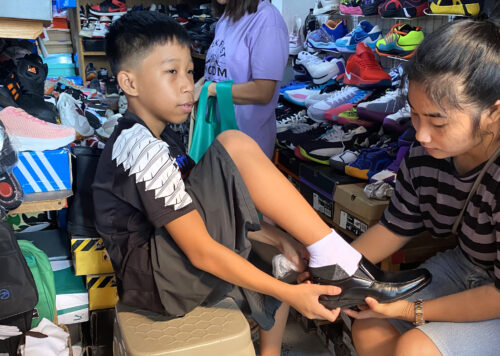
![]() Kentucky
Kentucky
Kenny is a kind and determined young man. Sadly his home life is far from what any child should have to experience, and though home life offers little support, he’s committed to making school a priority;
He dreams of becoming an engineer and moving to New York City.
Before being enrolled in Children Incorporated, he struggled with not having enough uniforms or school supplies. One of his biggest wishes was to have something as simple as an alarm clock to help him make it to school on time.
Thanks to his sponsor, Kenny received just that. Now, he proudly wakes himself up each morning, attends school regularly, and carries himself with newfound confidence. His dreams are no longer distant wishes—they’re goals he’s working toward every day.
READ THE FULL NEWSLETTER
 Josh is still waiting for a sponsor and needs someone to help make his school year a success. He is friendly and happy, and would love to just spend his time outside or helping others. At home with his family he makes sure to keep his room clean, and although he is the youngest of his siblings, Josh makes sure to be as helpful as he can.
Josh is still waiting for a sponsor and needs someone to help make his school year a success. He is friendly and happy, and would love to just spend his time outside or helping others. At home with his family he makes sure to keep his room clean, and although he is the youngest of his siblings, Josh makes sure to be as helpful as he can.
